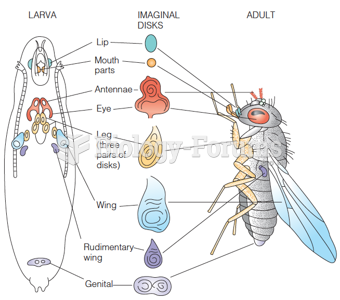Answer to Question 1
B
Feedback
A Incorrect: A child conforming to rules to please caregivers is in stage three (interpersonal concordance orientation) of the second level of morality called the conventional level.
B Correct: During stage one (punishment and obedience orientation stage) of the first level of moral development (preconventional level), the child conforms to rules due to fear of punishment.
C Incorrect: During stage one (punishment and obedience orientation stage) of the first level of moral development (preconventional level), the child conforms to rules due to fear of punishment, not because the child likes rules.
D Incorrect: During stage one (punishment and obedience orientation stage) of the first level of moral development (preconventional level), the child conforms to rules due to fear of punishment, not to get rewards.
Answer to Question 2
C
Feedback
A Incorrect. Teaching the parents of a young infant who has nasopharyngitis to modify the feedings, the nurse will not recommend a steam tent, as this may agitate the infant more.
B Incorrect. Teaching the parents of a young infant who has nasopharyngitis to modify the feedings, the nurse will not recommend the use of nasal drops containing a mild antihistamine prior to each feeding (But, for infants, use only saline drops without antihistamine, prior to each feeding is a good recommendation).
C Correct. Teaching the parents of a young infant who has nasopharyngitis to modify the feedings, the nurse will advise a calm and patient approach, and to feed the infant with frequent rest periods during each feeding.
D Incorrect. Teaching the parents of a young infant who has nasopharyngitis to modify the feedings, the nurse will not recommend that the parents thicken the formula with some infant rice cereal, and feed less at each regularly scheduled feeding.







